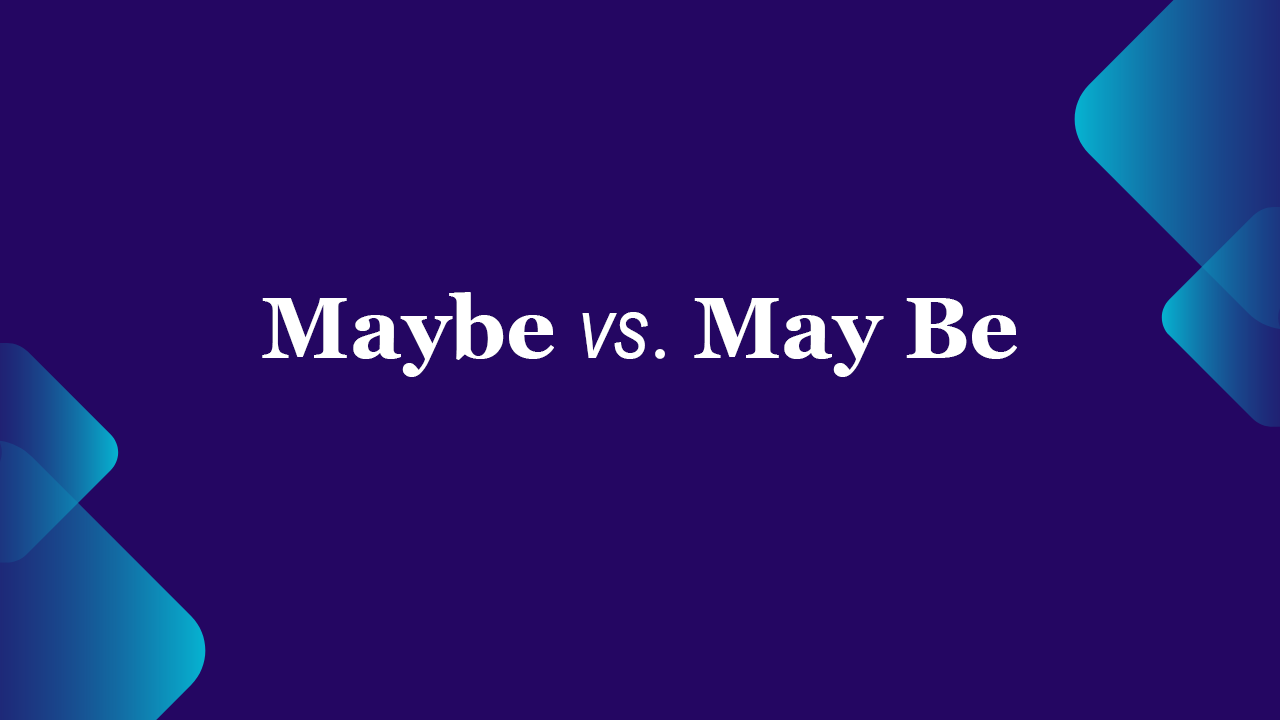Understanding the difference between “maybe” and “may be” is important for using these words correctly in English. Though they sound similar, they have different meanings and uses. In this blog post, I’ll explain when to use each one.
What Does “Maybe” Mean?
“Maybe” expresses uncertainty – it means that something is possible or that we’re not sure about something. For example:
- I’m not sure what I’ll do today. Maybe I’ll go shopping.
- You should try the new restaurant. Maybe you’ll like it.
- He didn’t answer the phone. Maybe he’s busy.
“Maybe” can be used with any tense and is usually placed at the beginning of a sentence. It can also stand alone as a one-word response, like “yes” or “no”:
- Will you be free this weekend?
- Maybe.
How Do We Use “May Be”?
Whereas “maybe” can be used with any tense, “may be” is only used to talk about the present and the future. Here are the main ways we use it:
1. Instead of saying “is,” “am,” or “are” when we’re uncertain about the present:
- He is hungry. → He may be hungry.
- She is working. → She may be working.
2. We can use “may be” instead of “will be” or “is/am/are going to” when we’re uncertain about the future:
- We are going to be late. → We may be late.
- She’s going to be excited. → She may be excited.
3. We can also use “there may be” to show the possibility of something existing now or in the future:
- There may be a storm this evening.
- There may be free drinks at the event tomorrow.
Key Differences Between the Two
The key distinction is that “maybe” expresses general uncertainty, while “may be” specifically replaces the verb “to be” when we’re unsure about the present or future.
So in summary:
- “Maybe” can be used with any tense to show uncertainty.
- “May be” is used only for present/future and replaces “is/am/are” or “will be.”
- You can also use “might be” in place of “may be.”
I hope this breakdown helps you understand when to use these two words and clears up any confusion!

